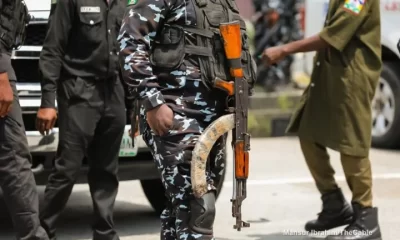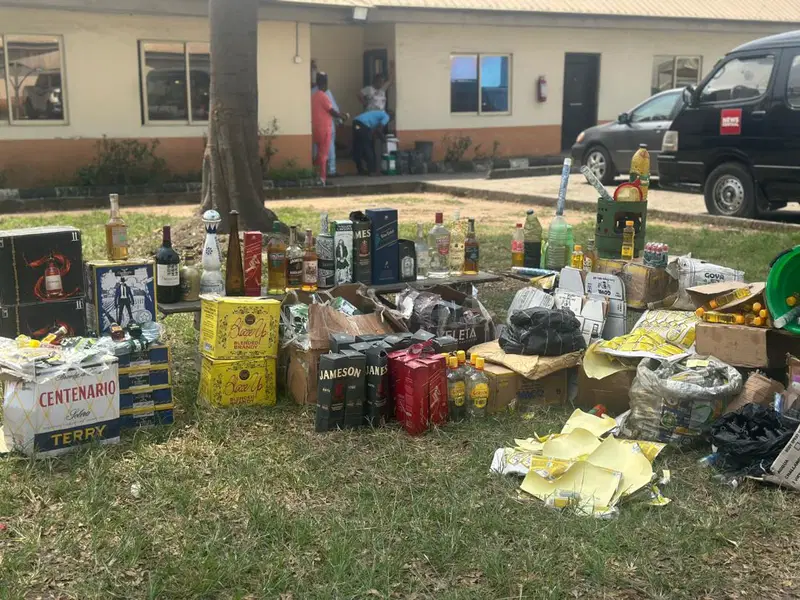Niger and Zamfara are among the few states in the North-west and North-Central regions, endowed with huge deposits of minerals and other natural resources, and for years, several communities in the two states have been into local mining as their second source of livelihood, after farming.
Weekend Trust investigations revealed that the two states are endowed with several minerals, including talc, gold, ball clays, silica, sand, marble, copper, iron, felspar, lead, kaolin, casserole, columbine, mica, quartzite, and limestone, among others.
Participation in the local mining in those communities has become the norm among the people, as every household is actively engaged in one aspect of mining or the other, depending on the capability or economic status of the family.
Each household engages in the activities, ranging from digging the pits, stone grinding, thrashing, or washing the sand in search of natural resources, particularly gold. Very few among the locals serve as agents of the major gold dealers.
Residents conduct mining locally, taking their gold and other minerals to places like Lagos, Port-Harcourt and sometimes to countries like Ghana and Benin Republic, among others, for onward sale to major dealers. On some occasions, the dealers visit the two states to buy gold and other minerals directly from the miners or through their agents.
The link between gold mining and banditry
Until the emergence of banditry in the two states, local mining had been taking place in several communities in Niger and Zamfara states without much negative impact, apart from the major hazard of mining pits’ collapse.
Even after the incidents of banditry started in the two states, initially, there was no link between the mining activities and the violent act. While the criminals were kidnapping for ransom, engaging in cattle rustling and carrying out attacks on villages and towns, the residents on the other hand, concentrated on mining and farming as their sources of livelihood.
In Zamfara State, it was gathered that the link between banditry and mining emanated from the miners, who developed the habit of killing one another in the course of their activities.
Alhaji Yusuf Bello, a local miner in Mutunji village, Maru Local Government, told Weekend Trust that, “Sometimes when a miner gets expensive gold, his colleagues connive and kill him in order to take away the gold. You know they carry Dane guns for protection because most of the mining sites are located in remote areas.
“However, as humans, sometimes they envy their colleagues whenever they get huge gold. So, at times, they kill their colleagues with a view to taking away the expensive mineral they have found.
“This is how killings among the miners started, and that was also the starting point of banditry in this part of the country. Both banditry and mining are about getting money,” he said.
It was learnt that after the bandits have rustled cattle and other animals and birds in the villages and towns, they will then compel the people to sell other properties to pay ransom for their loved ones to regain their freedom. Then, the bandits realised that whenever they demanded ransom, the relatives of their victims always asked to be given some days to enable them to sell their gold to pay.
This is said to have made the bandits change their tactics by using informants among the locals to know who had gold or any expensive mineral in the communities, so that he or his relatives would be abducted.
According to Idris Musa, a resident of Ruwan Dorawa village: “It is through this method that the bandits got to know that most of those that were paying ransom as and when due to free their loved ones, were from the gold mining families.
“That is how the bandits got attracted to mining activities. They got to understand that a lot of money was being made from it. The bandits, therefore, engaged in mining in many ways,” he further explained.
He said currently, most of the mining sites in the state are either owned or controlled by bandits’ leaders, recalling that “about three months ago, one of the bandit kingpins, Kachalla Halilu, allegedly got gold worth N150 million in Kanye village, Anka Local Government Area of Zamfara State.
“Kachalla focuses more on mining than banditry nowadays. He has hired dozens of local miners who are currently working for him at various mining sites across the state. Also, in Mada village, Gusau Local Government Area, more than half of the mining sites operating in Fegin-Mahe and Ajiya villages and parts of Zurmi Local Government Area are said to be owned and controlled by bandits’ leaders.
Muhammad Sanusi, a resident of Zurmi town, told Weekend Trust that, “We always wonder why the local mining continues in this part of the state despite the security challenges we are facing. You will never hear that bandits attacked mining sites in this area.
“But the bandits have launched several attacks on villagers, abducting and killing scores of people besides the large number of domestic animals and other belongings they cart away or destroy. This is to tell you that there is a strong link between the bandits and miners,” he said.
Also, a resident of Tsafe town, Iliyasu Abubakar, alleged that the famous bandits’ leaders, Bello Turji and Ado Alleiro, were involved in mining activities. They are said to own mining sites in Maru, Bukkuyyum, Maradun and Tsafe local government areas, among other places.
Also, checks in Dansadau district indicated that there are no fewer than 18 villages where bandits are carrying out mining activities, with another 18 villages in Zurmi Local Government, while in Birnin Magaji, the residents have entered an agreement with a bandit kingpin, Dan Karami, to control all the mining sites in Gotal and Shamshalle villages and allow them to live in peace.
Sometime in September last year, one of the bandits’ leaders in the state, Damina, placed a levy of N200 million on the people of Mutunji village in Maru, after he heard about a huge amount of gold scooped by one of the local miners in the village. And when the people failed to pay the levy, Damina abducted 150 members of the community, Weekend Trust gathered.
It was further gathered that virtually all the bandits’ leaders operating in Zamfara State are into illegal mining activities to get more money to buy sophisticated weapons, in order to sustain their operations.
Having realised the strong link that exists between banditry and mining, the Zamfara State Governor, Dauda Lawal, in January this year, signed an Executive Order prohibiting traditional rulers from issuing consent letters for mining across the state.


 Privacy5 years ago
Privacy5 years ago
 News5 years ago
News5 years ago
 Entertainment4 years ago
Entertainment4 years ago
 News5 years ago
News5 years ago
 Opinion5 years ago
Opinion5 years ago
 News5 years ago
News5 years ago
 Sports4 years ago
Sports4 years ago
 Entertainment4 years ago
Entertainment4 years ago














